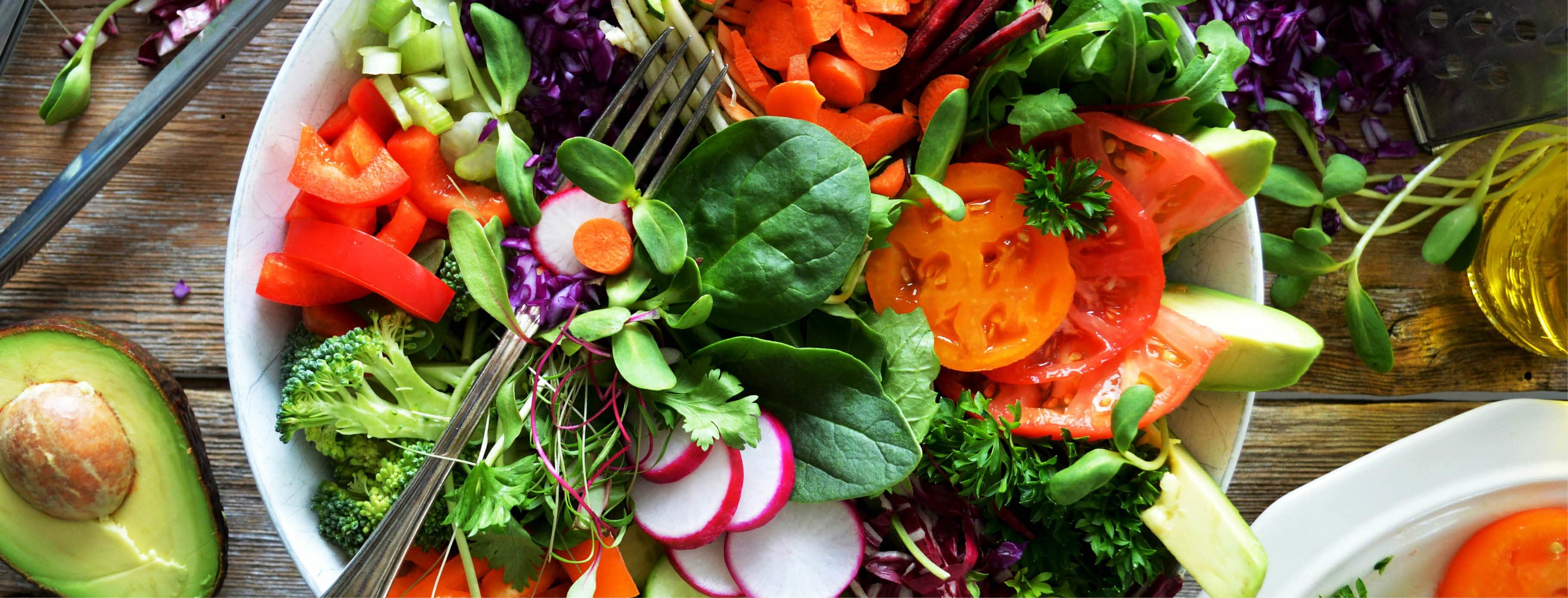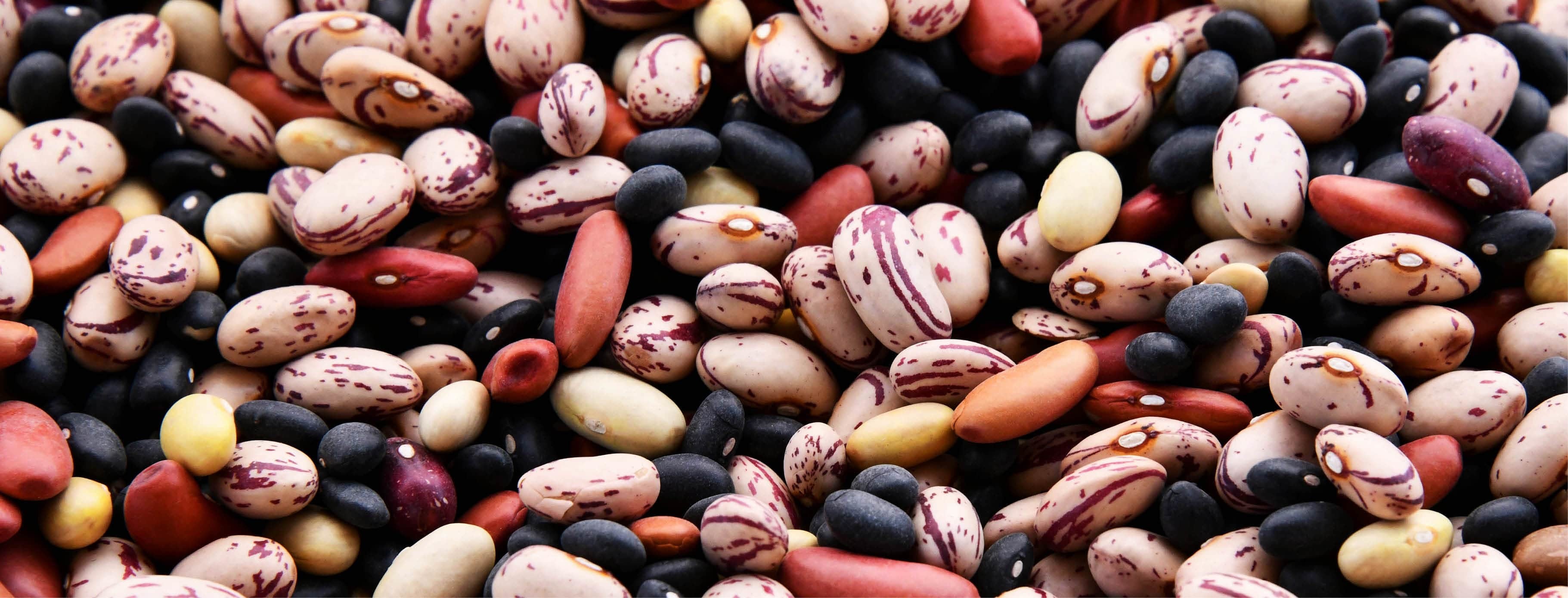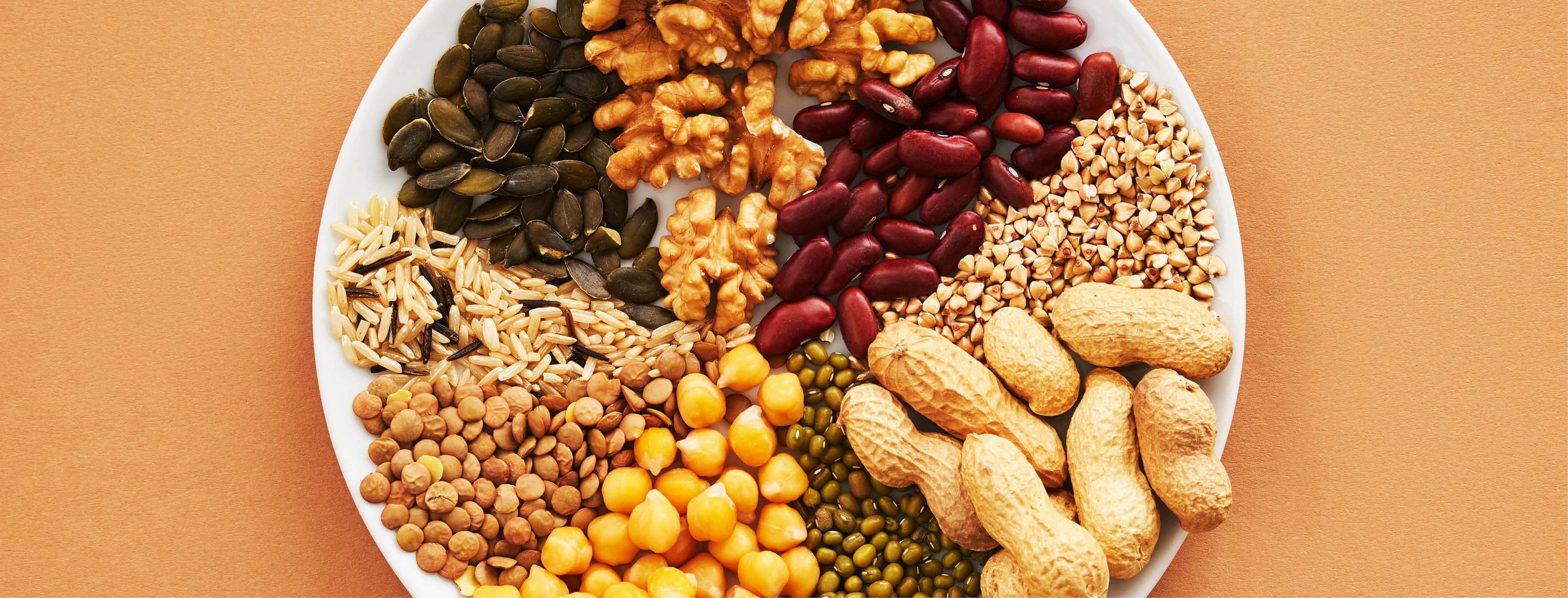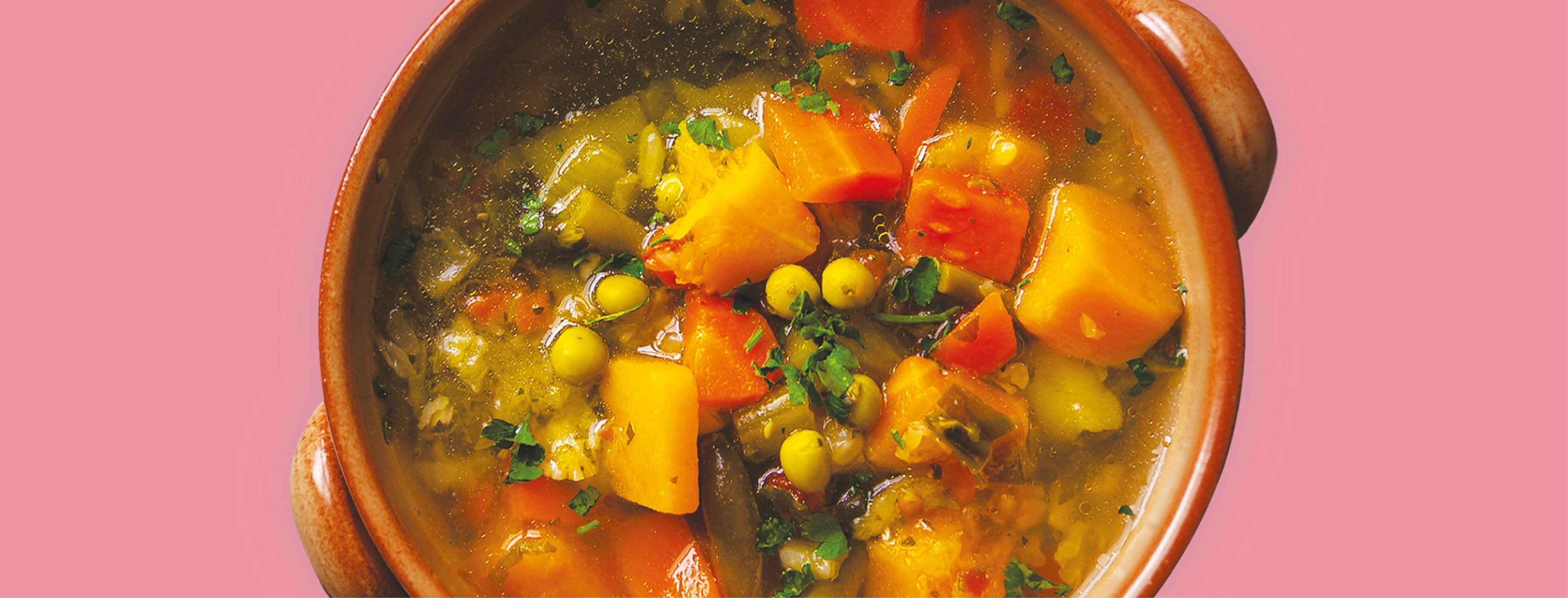You’ve no doubt heard numerous academics, including epidemiology professor Tim Spector, talking about the benefits of introducing more plants into our diets. That’s because they contain high amounts of fibre, no added sugars and can help support our gut health.

Spector’s recommendation, or ‘challenge’, is to eat 30 plants per week. Why? Because research shows that eating a wide variety of plant foods is important for your healthy gut microbiome – a collection of bacteria in your gut that help to keep you healthy.
Why is fibre important?
Dietary fibre is found in most plant-based food. It helps to move food through your digestive system, helps you to feel fuller for longer and slows down the rate of digestion which can positively impact your blood sugar levels.

Fibre or, specifically, prebiotics, is fuel for the good bacteria in your gut which can help to digest fats, control blood sugar spikes, and boost your immune system. The range of plants you eat is important, too, because different varieties contain different prebiotics, which support the diversity of bugs in your gut microbiome.
The 30 plants that support a healthy gut
It sounds like a lot but actually the list includes more than just fruit and vegetables. You can also count grains, nuts, seeds, herbs, and spices. What you end up with is something similar to the Mediterranean diet, which has long been considered beneficial to health, helping to reduce the risk of heart disease and type 2 diabetes.

Here is a list of ingredients that count towards your 30 plants per week:
- Fruits and vegetables
- Beans, pulses, and peas
- Grains (e.g. Brown rice, buckwheat noodles, oats, wholegrain pasta)
- Nuts and seeds
- Herbs and spices - Both fresh and dried count
- Coffee
- Dark chocolate
- Plain popcorn
Where possible, try to stick to wholemeal types of bread, pasta, and rice. Tim Spector also recommends drinking green tea, using extra virgin olive oil, and eating cheese and yoghurt, as these act as ‘fertiliser’ for the good bacteria in your gut.
Remember, we are all very different in how we respond to the same meal. However, overall we can all benefit from eating a wide variety of plant-based foods.
Fresh and filling vegetable soup
Why not try making this hearty and warming vegetable soup – you can fill it with as many different veggies as you like!

Ingredients:
200g chopped vegetables (e.g. onions, leeks, carrots, butternut squash)
300g potatoes, diced
1 tbsp. olive oil
Handful of lentils
700ml vegetable stock
Method:
- Fry all the veg and potatoes in a pan with the olive oil for a few minutes until they begin to soften.
- Add lentils and cover with the stock, then simmer for 10 minutes until everything is tender.
- Blend all together using a hand blender until smooth (can be left chunky rather than blended if preferred).
- This can be reheated over the hob or in the microwave.
